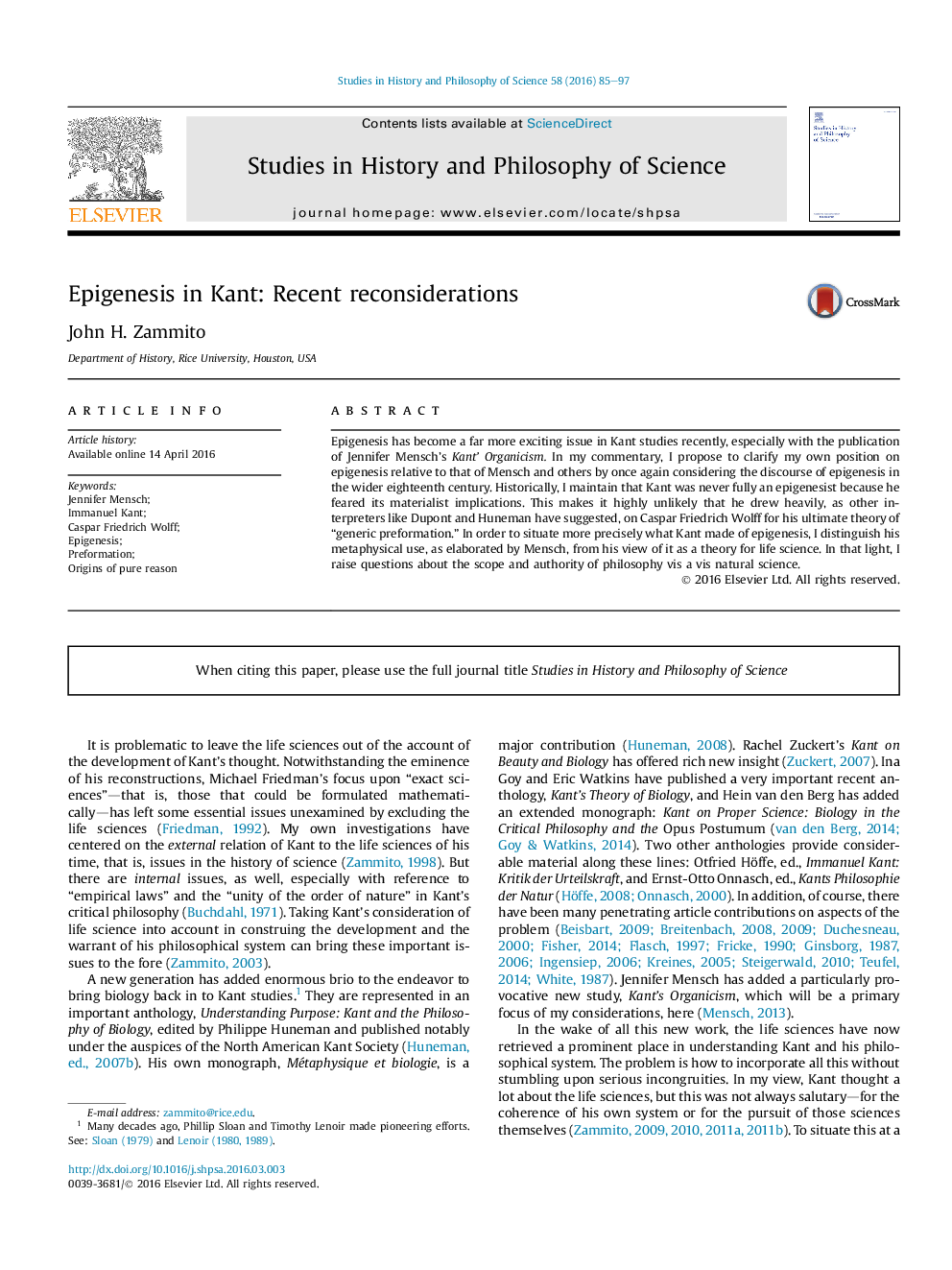| کد مقاله | کد نشریه | سال انتشار | مقاله انگلیسی | نسخه تمام متن |
|---|---|---|---|---|
| 1160334 | 1490324 | 2016 | 13 صفحه PDF | دانلود رایگان |
• Kant's treatment of epigenesis gets appraised in terms of the relation between philosophy of science and empirical natural science.
• Jennifer Mensch demonstrates Kant's appropriation of epigenesis for transcendental philosophy and rejection of it as actual theory in life science.
• I query whether Kant's philosophy offers resources for contemporary philosophy of biology.
Epigenesis has become a far more exciting issue in Kant studies recently, especially with the publication of Jennifer Mensch's Kant’ Organicism. In my commentary, I propose to clarify my own position on epigenesis relative to that of Mensch and others by once again considering the discourse of epigenesis in the wider eighteenth century. Historically, I maintain that Kant was never fully an epigenesist because he feared its materialist implications. This makes it highly unlikely that he drew heavily, as other interpreters like Dupont and Huneman have suggested, on Caspar Friedrich Wolff for his ultimate theory of “generic preformation.” In order to situate more precisely what Kant made of epigenesis, I distinguish his metaphysical use, as elaborated by Mensch, from his view of it as a theory for life science. In that light, I raise questions about the scope and authority of philosophy vis a vis natural science.
Journal: Studies in History and Philosophy of Science Part A - Volume 58, August 2016, Pages 85–97
